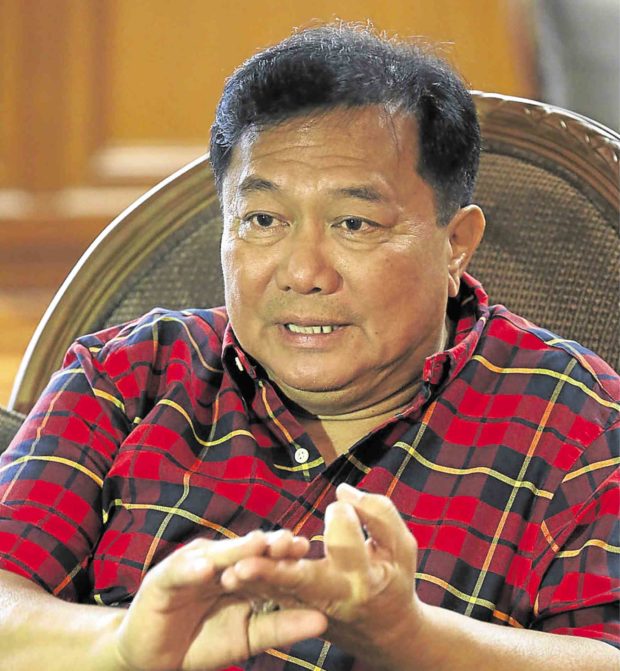
Speaker Pantaleon Alvarez
The Senate and the House of Representatives could still reach a “reasoned and pragmatic consensus” on the touchy question of how they should vote on proposed changes to the Constitution once the two chambers agreed on a constituent assembly (Con-ass), the chair of the House committee on constitutional amendments said on Friday.
“Interparliamentary diplomacy remains in play. Doors and windows are open. Communication channels are active,” said Southern Leyte Rep. Roger Mercado, whose committee is drafting a federal Constitution to be submitted to the Con-ass once it is convened.
“The Committee is open to working with its counterpart in the Senate on how to best proceed and we are hopeful that a reasoned and pragmatic consensus can be achieved in the days ahead,” he said.
Speaker Pantaleon Alvarez has said any constitutional amendment could be considered adopted if three-fourths of all members of the House and the Senate voted jointly, not separately, to accept it.
He added that the House could go ahead with Charter change even without the Senate’s participation because it had the numbers to fulfill the three-fourths requirement for amending the 1987 Constitution.
Senators, however, insist that the current Constitution directs separate voting by the Senate and the House in a Con-ass.
Senate President Aquilino Pimentel III on Friday warned there could be a “legal or constitutional” problem if the House, convened as a Con-ass, would not submit its output to the Senate for its concurrence.
“Will the House submit it to the Senate for our three-fourths vote concurrence?” Pimentel asked.
In a joint vote, the 292 House members could overwhelm the 24 senators, now down to 23 after President Duterte appointed Alan Peter Cayetano as foreign secretary last year.
The 1987 Constitution does not expressly state whether the two legislative chambers should vote jointly or separately in proposing amendments.
With the Senate standing firm against joint voting, Alvarez on Thursday suggested bringing the issue to the Supreme Court.
However, former Chief Justice Reynato Puno on Wednesday said it was unlikely the court would tackle the issue because it was a “political question, a question addressed only to the wisdom of the people.”
The 1987 Constitution had expanded the powers of the judiciary, including the power of the high court to review acts of government that show grave abuse of discretion, Puno said in a Senate hearing on constitutional amendments.
“But even with that expanded definition of judicial power, it still doesn’t have jurisdiction to accommodate and decide on questions that are political in character,” he said.
He also said that if the Senate did not act on the House resolution convening Congress as a Con-ass, the measure would be lost and the Senate could not be subjected to a writ of mandamus, or compelled to follow the House.
Sen. Panfilo Lacson said no amount of bullying and threats from the Speaker could compel senators to violate the Constitution they had all sworn to defend.
“Unless the House leader yields to the letter, spirit and intent of the 1987 Constitution in regard to Con-ass as a mode to revise or amend the Charter, the impasse will not be resolved and nothing will prosper,” Lacson said.
Mercado on Friday also sought to allay concerns about some suggested amendments, saying that the draft provisions of the proposed federal Constitution were still far from complete.
“There is no ‘final draft’ yet,” he said in a statement. “What is available as of now are simply proposed salient features.”
Mercado made the clarification after a number of proposed provisions provoked controversy. These included the abolition of the Office of the Vice President, the removal of the judicial review of grave abuse of discretion and the insertion of “responsible exercise” of freedom of speech.